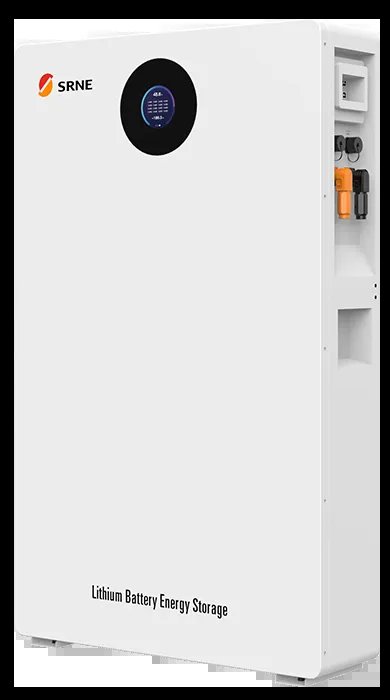
Looking for the latest information on lithium battery price in Nigeria? You’re in the right place. As the demand for reliable energy storage solutions grows in Nigeria, understanding the pricing dynamics of lithium batteries is crucial. From cost comparisons to market trends, this article will provide clear insights into the lithium battery price in Nigeria landscape. Stay tuned for valuable updates and tips to make informed decisions.
The Rising Popularity of Lithium Battery Technology in Nigeria
Welcome to our comprehensive guide on lithium battery prices in Nigeria. In recent years, the demand for lithium batteries has been steadily increasing due to their superior performance and reliability compared to traditional lead-acid batteries. As the Nigerian market embraces this innovative technology, understanding the factors influencing lithium battery prices becomes crucial for consumers and businesses alike.
The Basics of Lithium Battery Technology
Before delving into the prices, let’s first understand what makes lithium batteries so popular. Lithium-ion batteries are rechargeable energy storage devices that use lithium ions as the primary component of their electrolyte. These batteries offer higher energy density, longer lifespan, and faster charging capabilities compared to lead-acid batteries.
Advantages of Lithium Batteries
One of the main advantages of lithium batteries is their lightweight design, making them ideal for portable electronics, electric vehicles, and solar energy storage systems. Additionally, lithium batteries have a lower self-discharge rate, meaning they can retain their charge for longer periods when not in use.
Factors Affecting Lithium Battery Prices in Nigeria
Several factors contribute to the pricing of lithium batteries in Nigeria. Understanding these factors can help consumers make informed decisions when purchasing these energy storage solutions.
1. Raw Material Costs
The cost of raw materials used in manufacturing lithium batteries has a significant impact on their prices. Factors such as lithium and cobalt prices can influence the overall cost of production, ultimately affecting the retail prices of lithium batteries in Nigeria.
2. Technology and Innovation
Ongoing advancements in lithium battery technology, such as improvements in electrode materials and manufacturing processes, can also affect prices. More efficient and durable battery designs may come at a higher cost but offer better performance and longevity.
3. Import Tariffs and Taxes
Import tariffs and taxes imposed on lithium batteries can influence their prices in Nigeria. Understanding the regulatory environment and trade policies can help consumers anticipate potential price fluctuations and plan their purchases accordingly.
Current Lithium Battery Prices in Nigeria
As of [Current Year], the average price of lithium batteries in Nigeria ranges from [Price Range], depending on factors such as capacity, brand, and supplier. While prices may vary across different regions and retailers, consumers can expect to pay a premium for high-quality lithium batteries with advanced features.
Comparing Lithium Battery Brands
When considering lithium battery prices in Nigeria, comparing different brands and their offerings is essential. Some well-known brands in the market offer a range of lithium batteries tailored to specific applications, such as home energy storage, mobile devices, and electric vehicles.
Factors to Consider When Buying Lithium Batteries
Before making a purchase, consumers should consider factors such as capacity, voltage, cycle life, and warranty when selecting a lithium battery. Understanding these specifications can help users choose the right battery for their intended use and budget.
Future Outlook for Lithium Battery Prices in Nigeria
As the demand for energy storage solutions continues to grow in Nigeria, the prices of lithium batteries are expected to undergo further changes. Innovations in battery technology, economies of scale in production, and regulatory developments will all play a role in shaping the future pricing landscape of lithium batteries in the Nigerian market.
Key Trends to Watch
Key trends such as the adoption of renewable energy systems, electric vehicle penetration, and government initiatives promoting sustainable energy practices will drive the demand for lithium batteries in Nigeria. Keeping an eye on these developments can help consumers stay informed about potential price shifts and new product offerings.
In conclusion, the increasing popularity of lithium battery technology in Nigeria presents both opportunities and challenges for consumers and businesses. By understanding the factors influencing lithium battery prices and staying informed about market trends, individuals can make informed decisions when purchasing these advanced energy storage solutions.
As the Nigerian market continues to embrace lithium battery technology, the future looks promising for sustainable energy storage solutions that offer reliability, efficiency, and environmental benefits.
Thank you for reading our guide on lithium battery prices in Nigeria. Stay tuned for more updates on the latest trends and developments in the energy storage industry.
2025: Cost of different types of Solar inverters, Panels & batteries in Lagos Nigeria
Frequently Asked Questions
What factors influence the price of lithium batteries in Nigeria?
The price of lithium batteries in Nigeria is influenced by various factors including the brand, capacity, technology, and quality of the battery. Higher capacity batteries from reputable brands tend to be more expensive due to their performance and reliability.
Are there any government regulations affecting the pricing of lithium batteries in Nigeria?
Government regulations, such as import duties, taxes, and foreign exchange rates, can impact the pricing of lithium batteries in Nigeria. Changes in these regulations can lead to fluctuations in prices.
How does the global market trends affect the cost of lithium batteries in Nigeria?
Global market trends, such as demand-supply dynamics, raw material prices, and technological advancements, can impact the cost of lithium batteries in Nigeria. Fluctuations in the global market can influence the overall pricing of these batteries.
Final Thoughts
In conclusion, the cost of lithium batteries in Nigeria remains a significant concern for consumers. Factors such as import duties and supply chain challenges contribute to the high lithium battery prices in the country. As demand for clean energy solutions grows, finding ways to make lithium batteries more affordable in Nigeria is crucial. It is essential for policymakers and industry stakeholders to work together to address the issue of lithium battery price in Nigeria effectively.
